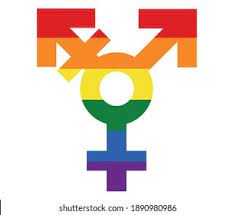Estrogen is often hailed as a vital hormone for women, playing a crucial role in various bodily functions. While many are familiar with estrogen’s impact on reproductive health, its significance extends far beyond that. Low estrogen levels can lead to a host of health issues that many women might not recognize until they experience symptoms. In this article, we’ll explore what estrogen is, its importance, the reasons behind low levels, and strategies for addressing this common concern.
What is Estrogen and Why It Matters for Your Health
Estrogen is a steroid hormone primarily produced in the ovaries, although it’s also made in smaller amounts by the adrenal glands and fat tissues. This hormone is pivotal in regulating the menstrual cycle, maintaining bone density, and supporting cardiovascular health. It also plays a role in the development of secondary sexual characteristics, such as breast development and the distribution of body fat. In essence, estrogen is a key player in ensuring that various bodily systems function well.Feminization TrainingAre Transgender Men GayAt What Age Should You Stop Taking Testosterone
Beyond reproduction, estrogen is involved in cognitive function, skin health, and even maintaining a healthy metabolism. Given its extensive roles, an insufficient amount can lead to a range of health problems that might seem unrelated at first glance. Understanding how estrogen influences your overall health can help you identify symptoms of deficiency and seek appropriate remedies.
Common Causes of Low Estrogen Levels in Women
There are several factors that can lead to low estrogen levels in women. One of the most common causes is menopause, which typically occurs between the ages of 45 and 55. As women approach this stage, their ovaries gradually produce less estrogen, leading to various physical and emotional changes. This natural decline is a major reason many women begin to notice symptoms associated with low estrogen.
Other factors contributing to low estrogen levels include certain medical conditions, like polycystic ovary syndrome (PCOS) and thyroid disorders. Lifestyle choices such as extreme dieting, excessive exercising, and high levels of stress can also disrupt hormonal balance. Additionally, certain medications, particularly those related to hormone therapy for cancer treatment, can lower estrogen levels significantly. Recognizing these causes can help you take proactive steps to manage your health.
Signs and Symptoms of Low Estrogen You Should Know
Women experiencing low estrogen levels may notice a variety of symptoms that can impact their daily lives. Common signs include irregular or absent menstrual periods, hot flashes, and night sweats. Vaginal dryness is another frequent complaint, which can lead to discomfort during intercourse and a decrease in libido. These physical symptoms can be frustrating and concerning, often prompting women to seek medical advice.
In addition to physical symptoms, low estrogen can also manifest in emotional and psychological changes. Many women report experiencing mood swings, increased anxiety, and difficulty concentrating. Fatigue is another common issue, as hormonal imbalances can disrupt sleep patterns and overall energy levels. Being aware of these signs can empower women to seek help and find effective solutions.
How Low Estrogen Affects Your Mood and Energy Levels
Low estrogen levels can significantly influence mood and energy, leading to feelings of irritability, sadness, or even depression. This is partly because estrogen plays a crucial role in the production of serotonin, a neurotransmitter that helps regulate mood. When estrogen levels drop, serotonin production can be affected, leading to mood fluctuations that may feel overwhelming at times.
Moreover, low estrogen can cause fatigue and a general feeling of low energy. With lower hormone levels, the body may struggle to maintain the same levels of vitality and stamina as before. This can lead to difficulties in daily activities, reduced motivation, and even social withdrawal. Recognizing that low estrogen can impact both mood and energy is essential for finding appropriate coping strategies.
The Role of Diet in Boosting Your Estrogen Levels
Diet plays a significant role in managing hormone levels, including estrogen. Certain foods are particularly beneficial for supporting estrogen production. For instance, phytoestrogens—plant-based compounds that mimic estrogen—can be found in foods like flaxseeds, soy products, and legumes. Incorporating these foods into your diet can help balance hormone levels and alleviate some symptoms of deficiency.
Additionally, maintaining a diet rich in healthy fats, such as those found in avocados, nuts, and olive oil, is crucial for hormone production. Vitamins and minerals, especially vitamin D, B vitamins, and magnesium, play supportive roles in hormone health. A well-balanced diet can not only boost your estrogen levels but also enhance overall well-being.
Natural Remedies to Help Increase Estrogen Production
If you’re looking for natural ways to increase estrogen production, there are several remedies worth considering. One of the most popular options is herbal supplements, such as red clover and black cohosh. These herbs are often used in traditional medicine to help alleviate symptoms associated with low estrogen. However, it’s essential to consult with a healthcare provider before starting any new supplements to ensure safety and efficacy.
In addition to herbs, exercise can also play a role in regulating hormones. Engaging in moderate physical activity, such as walking or yoga, can help balance hormone levels and reduce stress, which is vital for overall hormonal health. Mindfulness practices like meditation and deep breathing can further support emotional balance, making them excellent complementary strategies for managing low estrogen levels.
When to Consider Hormone Replacement Therapy (HRT)
Hormone Replacement Therapy (HRT) is often considered when lifestyle changes and natural remedies are not enough to alleviate symptoms of low estrogen. HRT involves supplementing the body with estrogen (and sometimes progesterone) to alleviate symptoms and decrease the risk of long-term health issues associated with low estrogen, such as osteoporosis. However, it’s crucial to weigh the benefits against potential risks, such as an increased risk of certain cancers and cardiovascular concerns.
Before making a decision, it’s essential to have a thorough discussion with your healthcare provider. They can help you understand the pros and cons of HRT, assess your individual health needs, and create a personalized treatment plan. Understanding your options can empower you to make informed choices about your health.
Tips for Managing Life with Low Estrogen Levels
Living with low estrogen levels can be challenging, but there are several strategies to help you manage the symptoms. First and foremost, prioritize self-care. This includes maintaining a balanced diet, staying active, and getting enough sleep. Establishing a routine that incorporates relaxation techniques can also be beneficial in managing stress and promoting emotional stability.
Additionally, seek support from friends, family, or support groups. Sharing experiences and suggestions with others who understand what you’re going through can provide comfort and reduce feelings of isolation. Lastly, keep the lines of communication open with your healthcare provider. Regular check-ins can help monitor your symptoms and adjust your care plan as necessary, ensuring you stay on track for better health.
Navigating the complexities of low estrogen levels can feel overwhelming, but awareness is the first step toward effective management. By understanding the role of estrogen in your health, recognizing the signs of deficiency, and exploring dietary and lifestyle changes, you can take charge of your well-being. Whether you opt for natural remedies or consider hormone replacement therapy, remember that you’re not alone on this journey. With the right support and information, you can maintain a fulfilling and healthy life despite low estrogen levels.


